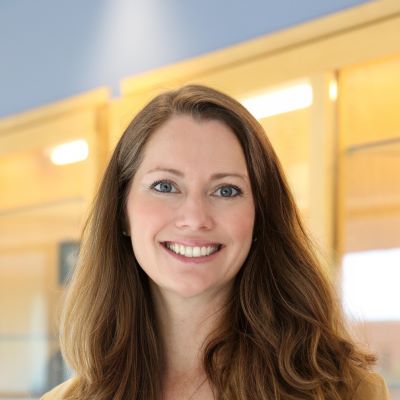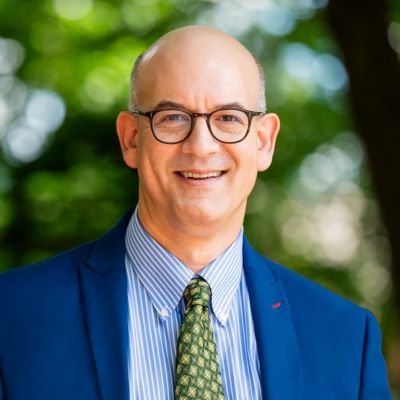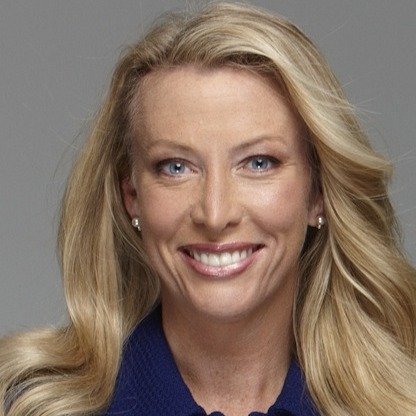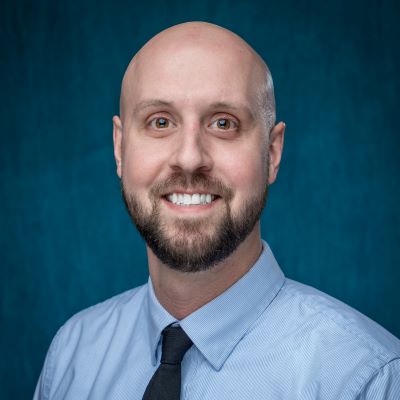|
| The Secret to Lasting Impact: Where Science, Service and Business Converge |
| Saturday, January 17, 2026 |
| 8:10 AM–9:00 AM |
| Sheraton New York Times Square Hotel; 2nd Floor, Metropolitan East |
| Area: AUT; Domain: Service Delivery |
| Chair: M. Christopher Newland (Auburn University) |
| CE Instructor: Doreen Granpeesheh, Ph.D. |
| Presenting Author: DOREEN GRANPEESHEH (Center for Autism and Related Disorders) |
| Abstract: Applied Behavior Analysis (ABA) has long been recognized for its clinical rigor and impact on patient outcomes—but sustaining and scaling effective clinical services demands more than science alone. This presentation explores the often-overlooked business dimensions of running a successful ABA organization, where clinical excellence must intersect with operational efficiency, financial sustainability, and strategic leadership. |
| Target Audience: This session is designed for behavior analysts, clinical directors, practice owners, and emerging leaders in ABA organizations who want to expand their impact beyond clinical delivery. It will be particularly valuable for professionals seeking to integrate evidence-based clinical practice with sound business operations, financial sustainability, and strategic leadership. Both seasoned practitioners and those new to management roles will benefit from insights on aligning science, service, and business for long-term success. |
Learning Objectives: 1. Analyze the key operational and financial drivers that impact the success of ABA clinical services
2. Apply Strategic leadership principles to scale ABA services while maintaining quality
3. Evaluate opportunities for growth and innovation in the ABA business landscape |
| |
| DOREEN GRANPEESHEH (Center for Autism and Related Disorders) |
 Doreen Granpeesheh, Ph.D., BCBA-D is a licensed psychologist and board-certified behavior analyst. She is the founder and CEO of the Center for Autism and Related Disorders (CARD), one of the world’s earliest organizations providing evidence-based behavioral therapy for individuals with autism. Dr. Granpeesheh has dedicated over four decades to advancing Applied Behavior Analysis (ABA) and empowering families through clinical innovation, research, and advocacy.
She began her career at UCLA under Dr. Ivar Lovaas, a seminal figure in ABA, and went on to build CARD into a global leader in autism services. After selling the company in 2018, she reacquired it in 2023 following bankruptcy under private equity ownership, restoring financial and clinical stability.
In addition to her clinical work, Dr. Granpeesheh is a passionate entrepreneur and public speaker. She has developed cutting-edge technologies like Neurodivergent Parenting to enhance caregiver training and continues to lead initiatives focused on quality, access, and sustainable business practices in behavioral health. Doreen Granpeesheh, Ph.D., BCBA-D is a licensed psychologist and board-certified behavior analyst. She is the founder and CEO of the Center for Autism and Related Disorders (CARD), one of the world’s earliest organizations providing evidence-based behavioral therapy for individuals with autism. Dr. Granpeesheh has dedicated over four decades to advancing Applied Behavior Analysis (ABA) and empowering families through clinical innovation, research, and advocacy.
She began her career at UCLA under Dr. Ivar Lovaas, a seminal figure in ABA, and went on to build CARD into a global leader in autism services. After selling the company in 2018, she reacquired it in 2023 following bankruptcy under private equity ownership, restoring financial and clinical stability.
In addition to her clinical work, Dr. Granpeesheh is a passionate entrepreneur and public speaker. She has developed cutting-edge technologies like Neurodivergent Parenting to enhance caregiver training and continues to lead initiatives focused on quality, access, and sustainable business practices in behavioral health. |
|
| |
| |
|
| Doing What We Say: Practical Strategies for Measuring Procedural Fidelity |
| Saturday, January 17, 2026 |
| 9:10 AM–10:00 AM |
| Sheraton New York Times Square Hotel; 2nd Floor, Metropolitan East |
| Area: AUT; Domain: Service Delivery |
| Chair: Terry S. Falcomata (The University of Texas at Austin) |
| CE Instructor: Claire C. St. Peter, Ph.D. |
| Presenting Author: CLAIRE C. ST. PETER (West Virginia University) |
| Abstract: Procedural fidelity is essential for ethical and effective service delivery, yet it is often treated as an afterthought—something to be checked off a list or overlooked entirely. In this presentation, I will challenge common assumptions about fidelity and highlight the critical role of fidelity in ensuring that our learners receive the services to which they consented. Drawing from applied and translational research in autism intervention, I will present practical, research-informed strategies for measuring fidelity in real-world settings where time and resources are often limited. Attendees will learn how to design sensitive and feasible fidelity measurement systems, distinguish between global and component-level fidelity, and apply fidelity data to improve both implementation quality and client outcomes. I will share examples of fidelity scoring methods, tools for assessing fidelity across repeated sessions, and ways to embed fidelity supports into training and supervision. Ethical considerations—including those related to informed consent, treatment validity, and stakeholder trust—will also be addressed. Finally, I will introduce emerging tools and approaches that can make fidelity measurement more sustainable, actionable, and aligned with the realities of everyday practice. Ultimately, the goal is to promote fidelity practices that are both rigorous and realistic, thereby enhancing the quality of services for autistic learners. |
| Instruction Level: Intermediate |
| Target Audience: This session is designed for behavior analysts, psychologists, supervisors, and other professionals involved in designing, delivering, or overseeing autism services. It will also benefit educators, researchers, and practitioners seeking practical, research informed strategies for measuring and supporting procedural fidelity in real world settings. Both early career and experienced professionals will find value in this presentation. |
Learning Objectives: 1. Describe at least three purposes of measuring procedural fidelity in autism intervention.
2. Compare different approaches to measuring fidelity (e.g., global vs. component; checklist vs. continuous).
3. Identify strategies to improve the accuracy and feasibility of fidelity data collection.
4. Discuss ethical considerations associated with monitoring fidelity in applied settings. |
| |
| CLAIRE C. ST. PETER (West Virginia University) |
 Dr. Claire St. Peter is a behavior analyst and educator whose work focuses on procedural fidelity, behavioral measurement, and improving learning outcomes in applied settings. She earned her Ph.D. in Psychology with an emphasis in Behavior Analysis from the University of Florida and is currently the Eberly Family Professor for Outstanding Public Service and Chair of the Department of Psychology at West Virginia University. Dr. St. Peter has authored over 70 publications and secured over $2.5 million in funding to support research improving services for children and families. She has served in leadership roles across the field and on editorial boards for major journals. Her work bridges translational and applied behavior analysis, with a focus on practical strategies to improve intervention implementation. Dr. Claire St. Peter is a behavior analyst and educator whose work focuses on procedural fidelity, behavioral measurement, and improving learning outcomes in applied settings. She earned her Ph.D. in Psychology with an emphasis in Behavior Analysis from the University of Florida and is currently the Eberly Family Professor for Outstanding Public Service and Chair of the Department of Psychology at West Virginia University. Dr. St. Peter has authored over 70 publications and secured over $2.5 million in funding to support research improving services for children and families. She has served in leadership roles across the field and on editorial boards for major journals. Her work bridges translational and applied behavior analysis, with a focus on practical strategies to improve intervention implementation. |
|
| |
| |
|
| Defining Profound Autism: Seeking Clarity to Advance Services and Science |
| Saturday, January 17, 2026 |
| 10:30 AM–11:20 AM |
| Sheraton New York Times Square Hotel; 2nd Floor, Metropolitan East |
| Area: AUT; Domain: Service Delivery |
| Chair: M. Christopher Newland (Auburn University) |
| CE Instructor: Matthew Siegel, M.D. |
| Presenting Author: MATTHEW SIEGEL (Boston Children's Hospital) |
| Abstract: The definitions of autism have changed dramatically over the past four decades to include a wide range of people. The field continues to debate the utility and meaning of identifying portions of the spectrum as distinct groups, including the recently introduced term Profound Autism. Autistic people with Profound Autism have very high support needs, but have received less research attention over time, despite having elevated rates of co-occurring mental health and behavioral challenges. The field lacks consensus criteria for this group, which impedes research progress. We will explore some of the ways the field has approached complex presentations in autism, highlight the critical area of adaptive functioning, and consider the benefits and risks of focusing on this group. Directing attention to the adaptive functioning of people with Profound Autism may lead to greater clarity in identification and improved individualization of services and supports. |
| Instruction Level: Intermediate |
| Target Audience: This presentation is designed for behavior analysts, psychologists, special educators, researchers, clinicians, and service providers who work with individuals on the autism spectrum, particularly those supporting individuals with high support needs. It may also be of interest to policymakers, program administrators, and advocates seeking greater clarity around the term "Profound Autism" and its implications for research, diagnosis, and individualized services. |
Learning Objectives: 1. describe the origins of the term Profound Autism (PA) and the key factors that contributed to its definition by the Lancet Commission.
2. explain the different approaches researchers have used to operationalize PA, including the use of adaptive functioning, IQ, and verbal fluency as criteria.
3. identify recent efforts to establish a clearer framework for defining PA and discuss its implications for research, measurement, and lifelong support. |
| |
| MATTHEW SIEGEL (Boston Children's Hospital) |
 A board-certified child psychiatrist and pediatrician, Dr. Siegel serves in dual roles as the Chief of Clinical Enterprise for the Department of Psychiatry at Boston Children’s and the Chief Behavioral Health Officer at Franciscan Children’s. He is a key leader in creating a more equitable and effective system of integrated care, research and education that will improve the lives of children and families in Massachusetts and New England. Dr. Siegel previously served as a Vice President of Medical Affairs at MaineHealth, leading an integrated continuum of care, research and training for the behavioral health needs of youth with developmental disabilities. Dr. Siegel’s research has focused on developing effective multidisciplinary care for serious behavioral challenges and co-occurring psychiatric disorders in youth with developmental disabilities, and characterizing those with profound autism. He founded and is the principal investigator of the Autism and Developmental Disorders Inpatient Research Collaborative (ADDIRC) and founded the first learning health network of inpatient units serving people with developmental disabilities. He has advised multiple state and federal agencies, hospitals and academic departments nationally on developing evidence-based mental health services for children and families. He is a scientist member of the NIH Interagency Autism Coordinating Committee, and an author of the American Academy of Child and Adolescent Psychiatry's practice guidelines for autism and for intellectual disability. Dr. Siegel is a graduate of Amherst College and Stanford Medical School, completed his training at Brown University, obtaining board certification in child psychiatry, psychiatry and pediatrics, earned an MBA at Brandeis University, and is a Professor of Psychiatry and Pediatrics at Tufts University School of Medicine. A board-certified child psychiatrist and pediatrician, Dr. Siegel serves in dual roles as the Chief of Clinical Enterprise for the Department of Psychiatry at Boston Children’s and the Chief Behavioral Health Officer at Franciscan Children’s. He is a key leader in creating a more equitable and effective system of integrated care, research and education that will improve the lives of children and families in Massachusetts and New England. Dr. Siegel previously served as a Vice President of Medical Affairs at MaineHealth, leading an integrated continuum of care, research and training for the behavioral health needs of youth with developmental disabilities. Dr. Siegel’s research has focused on developing effective multidisciplinary care for serious behavioral challenges and co-occurring psychiatric disorders in youth with developmental disabilities, and characterizing those with profound autism. He founded and is the principal investigator of the Autism and Developmental Disorders Inpatient Research Collaborative (ADDIRC) and founded the first learning health network of inpatient units serving people with developmental disabilities. He has advised multiple state and federal agencies, hospitals and academic departments nationally on developing evidence-based mental health services for children and families. He is a scientist member of the NIH Interagency Autism Coordinating Committee, and an author of the American Academy of Child and Adolescent Psychiatry's practice guidelines for autism and for intellectual disability. Dr. Siegel is a graduate of Amherst College and Stanford Medical School, completed his training at Brown University, obtaining board certification in child psychiatry, psychiatry and pediatrics, earned an MBA at Brandeis University, and is a Professor of Psychiatry and Pediatrics at Tufts University School of Medicine. |
|
| |
| |
|
| Favors, Facts & Fishnets: Applied Behavior Analysis (ABA), Autism, and the Parental Voice |
| Saturday, January 17, 2026 |
| 11:30 AM–12:20 PM |
| Sheraton New York Times Square Hotel; 2nd Floor, Metropolitan East |
| Area: AUT; Domain: Service Delivery |
| Chair: Terry S. Falcomata (The University of Texas at Austin) |
| CE Instructor: Lorri Shealy Unumb, J.D. |
| Presenting Author: LORRI SHEALY UNUMB (Council of Autism Service Providers) |
| Abstract: When my son was diagnosed with autism two decades ago, health insurance did not cover ABA at all. Today, most insured families in America have ABA benefits. This session will focus on the lessons learned from the groundbreaking, parent-led autism insurance reform movement and consider how the successful advocacy strategies can now be applied to address still-needed policy reform. Further, we will examine and discuss what to do about: • gaps and caps in coverage (e.g., adults!), • non-insurance products masquerading as insurance, and • the significant restrictions that sometimes discourage or block providers from recommending and delivering needed intensity. Finally, we’ll brainstorm ABA outcomes that are meaningful to a family. |
| Target Audience: Behavior analysts, clinicians, administrators, and advocates interested in autism services and policy reform. This session will be especially relevant for professionals seeking to understand the parent led autism insurance reform movement, apply effective advocacy strategies, and address current coverage gaps and systemic barriers. Parents and caregivers invested in shaping meaningful ABA outcomes may also find value in this discussion. |
Learning Objectives: 1. Identify different types of health insurance policies and why it matters
2. Understand the protections afforded in ABA by the federal Mental Health Parity and Addiction Equity Act
3. Understand why Medicaid pays for ABA |
| |
| LORRI SHEALY UNUMB (Council of Autism Service Providers) |
 Lorri Unumb is a lawyer, law professor, mother of three, and an internationally renowned autism advocate.
She began her career clerking for a US District Judge in South Carolina and then moved to Washington, D.C. to practice law with the United States Department of Justice.
She then became a law professor at law schools in D.C. (George Washington University) and Charleston, and taught advocacy courses at the DOJ National Advocacy Center.
Following her firstborn son’s diagnosis with autism, Lorri began volunteering in autism, writing ground-breaking legislation for South Carolina (“Ryan’s Law”) that passed in 2007 and served as the catalyst for the national movement toward autism insurance reform. She then was recruited by Autism Speaks to advocate full-time on behalf of individuals with autism.
In 2010 Lorri founded the Autism Academy of South Carolina, a non-profit ABA clinic; in 2019, the board renamed the academy “The Unumb Center for Neurodevelopment” in honor of Lorri’s extensive national contributions in the autism field. Lorri & Dan also wrote the first-ever textbook on legal issues related to autism, called “Autism and the Law.” Additionally, Lorri is in her 19th year running the Autism Law Summit, a national gathering of parents and professionals who advocate for legal and policy change.
For her advocacy efforts, Lorri has been recognized with multiple national awards:
• 2012 NASCAR Foundation’s Betty Jane France Humanitarian of the Year Award;
• Professional Women in Advocacy “Excellence in a State Campaign” 2014 Award;
• the Civitan International “World Citizenship” 2021 Award;
• Longines/Town&Country magazine’s 2009 “Women Who Make a Difference” award.
She is also profiled in the AAP book “Autism Spectrum Disorders: What Every Parent Needs to Know.” Lorri Unumb is a lawyer, law professor, mother of three, and an internationally renowned autism advocate.
She began her career clerking for a US District Judge in South Carolina and then moved to Washington, D.C. to practice law with the United States Department of Justice.
She then became a law professor at law schools in D.C. (George Washington University) and Charleston, and taught advocacy courses at the DOJ National Advocacy Center.
Following her firstborn son’s diagnosis with autism, Lorri began volunteering in autism, writing ground-breaking legislation for South Carolina (“Ryan’s Law”) that passed in 2007 and served as the catalyst for the national movement toward autism insurance reform. She then was recruited by Autism Speaks to advocate full-time on behalf of individuals with autism.
In 2010 Lorri founded the Autism Academy of South Carolina, a non-profit ABA clinic; in 2019, the board renamed the academy “The Unumb Center for Neurodevelopment” in honor of Lorri’s extensive national contributions in the autism field. Lorri & Dan also wrote the first-ever textbook on legal issues related to autism, called “Autism and the Law.” Additionally, Lorri is in her 19th year running the Autism Law Summit, a national gathering of parents and professionals who advocate for legal and policy change.
For her advocacy efforts, Lorri has been recognized with multiple national awards:
• 2012 NASCAR Foundation’s Betty Jane France Humanitarian of the Year Award;
• Professional Women in Advocacy “Excellence in a State Campaign” 2014 Award;
• the Civitan International “World Citizenship” 2021 Award;
• Longines/Town&Country magazine’s 2009 “Women Who Make a Difference” award.
She is also profiled in the AAP book “Autism Spectrum Disorders: What Every Parent Needs to Know.” |
|
| |
| |
|
| Learner-Centered Approaches to Skill Acquisition: Stimulus Control, Applied Practice, and the Golden Goose |
| Saturday, January 17, 2026 |
| 12:30 PM–1:20 PM |
| Sheraton New York Times Square Hotel; 2nd Floor, Metropolitan East |
| Area: AUT; Domain: Applied Research |
| Chair: M. Christopher Newland (Auburn University) |
| CE Instructor: Tom Cariveau, Ph.D. |
| Presenting Author: TOM CARIVEAU (University of North Carolina Wilmington) |
| Abstract: Decades of research from basic and applied laboratories suggest that certain procedural arrangements or types of stimuli can produce responding under unintended sources of stimulus control. The behavior analyst’s detection of the incongruence between what is learned and what was intended to be learned often requires direct testing of what could be learned. It is paramount, then, that the behavior analyst “make sure that pupils see what they see” (Sidman, 2011, p. 986), which might be more effectively arranged by attempting to see (or even catch a glimpse) from our learners’ view. Fortunately, the tactics that define the behavior analytic approach, characteristic of both applied practice and basic research, provide a framework for this type of analysis for each learner. This presentation will describe the approach taken by our lab to improve our inferences of our learner’s view (i.e., propensity for certain stimulus control topographies) and to arrange interventions to ensure coherence of what is taught and what is learned. |
| Target Audience: This session is designed for behavior analysts, researchers, and practitioners who are engaged in skill acquisition programming and are interested in refining their understanding of stimulus control processes. It will be particularly valuable for professionals who design, implement, or evaluate instructional strategies and want to ensure that learning outcomes align with instructional goals. Graduate students, supervisors, and educators seeking to strengthen their ability to detect and address unintended sources of stimulus control in applied settings will also benefit. Attendees should have a foundational knowledge of behavior analytic concepts and a desire to deepen their application to learner-centered approaches. |
Learning Objectives: 1. Attendees will be able to describe methods to test for restricted sources of stimulus control.
2. Attendees will be able to define differential observing responses and provide examples of their use in applied practice.
3. Attendees will be able to define the “rookie stimulus control error” and provide potential examples of this error in the published literature. |
| |
| TOM CARIVEAU (University of North Carolina Wilmington) |
 Dr. Tom Cariveau is an Associate Professor in the Department of Psychology at the University of North Carolina Wilmington. There, he conducts applied research on skill acquisition and stimulus control in collaboration with a small team of exceptional graduate students. He received his Ph.D. from the University of Oregon under the mentorship of Dr. Tiffany Kodak and completed a postdoctoral fellowship at the Marcus Autism Center under the mentorship of Dr. Alice Shillingsburg. He is a current associate editor for The Analysis of Verbal Behavior and the Journal of Behavioral Education and serves on the editorial boards of the Journal of Applied Behavior Analysis and the Journal of the Experimental Analysis of Behavior. Dr. Cariveau is the past president of the Southeastern Association for Behavior Analysis. Dr. Tom Cariveau is an Associate Professor in the Department of Psychology at the University of North Carolina Wilmington. There, he conducts applied research on skill acquisition and stimulus control in collaboration with a small team of exceptional graduate students. He received his Ph.D. from the University of Oregon under the mentorship of Dr. Tiffany Kodak and completed a postdoctoral fellowship at the Marcus Autism Center under the mentorship of Dr. Alice Shillingsburg. He is a current associate editor for The Analysis of Verbal Behavior and the Journal of Behavioral Education and serves on the editorial boards of the Journal of Applied Behavior Analysis and the Journal of the Experimental Analysis of Behavior. Dr. Cariveau is the past president of the Southeastern Association for Behavior Analysis. |
|
| |